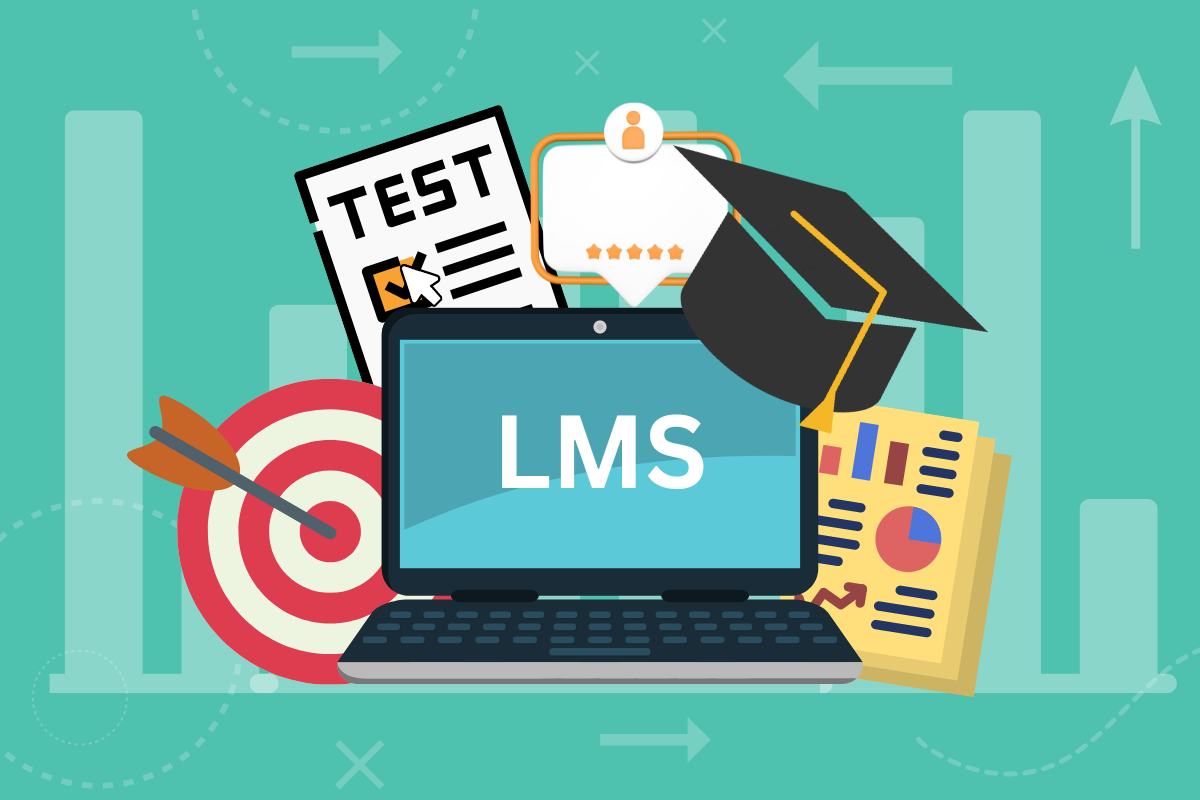An LMS is an unparalleled source of information for instructors
We all know that the primary objective for companies is to achieve their planned goals by optimizing operational efficiency. But how can these goals be realized? The answer lies in the deployment of leading employee training software programs. These programs have to actively impart valuable skills and knowledge to employees, which will positively impact their behaviour and performance on the job. By investing in employee training software, companies can equip their workforce with the tools they need to succeed and achieve their objectives, whether through upskilling or reskilling initiatives.
As organizations increasingly recognize the importance of investing in employee training and development, the need for effective ways to measure employee performance has become more pressing. However, it is not enough to simply provide training programs; companies must also find effective ways to measure employee performance to ensure that their investment in training is paying off. One such solution is the use of a Learning Management System (LMS), which can provide valuable insights into employee performance metrics. An LMS can track an employee's progress in completing courses, measure assessment scores, assess competencies, and support ongoing performance reviews.
Online training for performance management provides employees with task-based knowledge and skill-building tools necessary to tackle everyday challenges with confidence. By utilizing an LMS, companies can not only provide their employees with the necessary skills and knowledge to succeed but also monitor the effectiveness of their training program and track individual progress. In this blog, we will explore how an LMS can help with employee performance measurement and support ongoing professional development.

Course Completion Metrics
Tracking course completion metrics is a key way that an LMS can use with employee performance measurement. An employee's progress in completing courses can be monitored, which provides valuable insights in learning and development. This information can be used to measure performance and identify areas where additional training may be needed for upskilling. For instance, if an employee is struggling to complete a particular course or is consistently scoring low on assessments, it may indicate that they need additional support or training in that area.
By addressing these gaps in knowledge or skills, companies can improve overall employee performance and ensure that their workforce is equipped to achieve their goals. Furthermore, tracking course completion metrics allows companies to identify high-performing employees who may be ready for more advanced training or opportunities for career growth.
Assessment Scores
In addition to tracking course completion metrics, an LMS can also help with employee performance measurement by tracking assessment scores. Assessment scores in an LMS refer to the scores or grades that learners receive upon completing an assessment or quiz. When a learner takes an assessment or quiz in an LMS, the system automatically grades the assessment and assigns a score to the learner based on their performance, which can be used to identify areas where employees may be struggling or have knowledge gaps that need to be addressed.
Using this data, instructors can create targeted training plans to improve employees’ performance and promote upskilling or reskilling. For example, if multiple employees consistently score poorly on a certain topic, additional training or resources can be provided to address that specific area. By using this type of targeted training, companies can see significant improvements in overall employee performance and ensure that their workforce is equipped to achieve their objectives.
Competency Assessments
Competency assessments can be administered to evaluate an employee's skills and knowledge through an LMS. These assessments are typically used to measure the effectiveness of a training program or to identify gaps in employee performance and may be used to assess specific job-related skills, such as technical skills or soft skills like communication or teamwork. Both self-assessments and assessments by managers can provide valuable data on an employee's competencies that can be used to identify areas where additional training or support may be needed.
By tracking these assessments in an LMS, companies can develop personalized training plans that address an employee's specific needs and focus on developing their strengths while also addressing their weaknesses. This personalized approach to employee development can lead to improved performance and ensure that employees have the skills and knowledge necessary to succeed in their roles. Ultimately, this can result in better overall results for the company and provide employees with learning experiences that are tailored to their individual needs.
Performance Reviews
An LMS can also support ongoing performance reviews by providing managers with valuable data on an employee's progress, performance, and learning. By tracking an employee's course completion metrics, assessment scores, and competency assessments, the LMS can help inform about current status and identify areas needing development including upskilling or reskilling. This data can be used to provide specific feedback to employees, help set goals for their ongoing professional development, and support the creation of individualized development plans.
If an employee consistently struggles in a particular area, his manager can use the data from the LMS to identify the specific courses or training programs that may help improve the performance in that area. By using this information to guide performance reviews, managers can work collaboratively with employees to create development plans that address their unique needs and support their ongoing growth and success.
An LMS for Maximizing Employee Performance
Investing in employee training software and utilizing an LMS can significantly impact employee performance and support ongoing professional development, including upskilling and/or reskilling initiatives. By tracking course completion metrics, assessment scores, and competency assessments, companies can identify areas where additional training and support may be needed to improve overall employee performance.
The data provided by an LMS can also support ongoing performance reviews by providing managers with valuable insights into an employee's progress, performance, and learning. With a personalized approach to employee development, companies can equip their workforce with the skills and knowledge necessary to succeed in their roles and achieve their goals.
By using an LMS, such as Captivo, to measure employee performance, companies can ensure that their investment in employee training is paying off and make informed decisions about future training initiatives.


